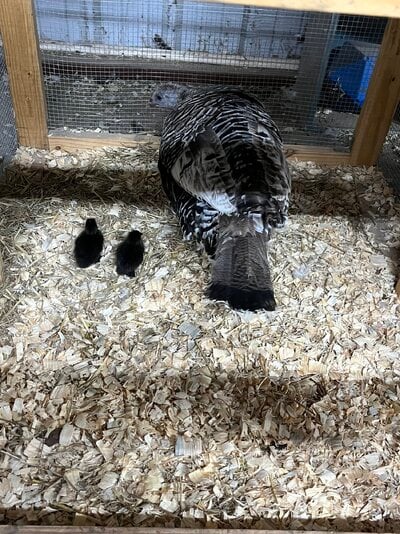- Aug 26, 2011
- 140
- 300
- 266
She has been a great mom so far, very patient and protective. She’s inside the barn inside a hardware mesh box with babies, own food, water and greens. I let her out twice a day if she wants to.Keep us updated on how it goes. I personally don't put new chicks/ducklings/goslings with their mother. There are too many hazards and they do not need a mother. I put them in a brooder. To me it's not worth the risk, but if you don't have very many birds and they're inside or in a secure 1/2"x1/2" cage it's okay. Just my opinion.





 Anyway to make sure they are girls! lol
Anyway to make sure they are girls! lol